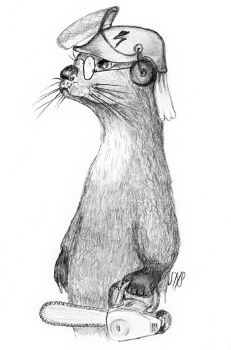pOTTR: Extract, transform and Load with bOTTR
Table of Contents
Extract, transform and Load with bOTTR

Convert queryable sources to OTTR template instances
- Authors
- Martin G. Skjæveland
- Issues
- https://gitlab.com/ottr/language/pOTTR/issues
1 Introduction
This chapter contains exercises that show how bOTTR [1] can be used to extract data by quering RDF files, SPARQL endpoints, CSV files and relational database and converting the query results to OTTR template instances.
1.1 Prefixes
The following prefixes are used throughout the document, and may be used in the text input areas of the interactive examples without declaration.
@prefix rdf: <http://www.w3.org/1999/02/22-rdf-syntax-ns#> . @prefix rdfs: <http://www.w3.org/2000/01/rdf-schema#> . @prefix owl: <http://www.w3.org/2002/07/owl#> . @prefix xsd: <http://www.w3.org/2001/XMLSchema#> . @prefix foaf: <http://xmlns.com/foaf/0.1/> . @prefix dbp: <http://dbpedia.org/ontology/> . @prefix ex: <http://example.com/ns#> . @prefix ottr: <http://ns.ottr.xyz/0.4/> . @prefix ax: <http://tpl.ottr.xyz/owl/axiom/0.1/> . @prefix rstr: <http://tpl.ottr.xyz/owl/restriction/0.1/> .
2 Extracting data from RDF files and SPARQL endpoints
2.1 Exercise: Copying triples from SPARQL endpoints
The bOTTR map below retrieves 5 triples the SPARQL endpoint at
http://dbpedia.org/sparql and instantiates the base template
ottr:Triple.
Change the ottr:InstanceMap so that it instead selects 5 type
relationships, i.e., triples with a rdf:type predicate, and
instantiates the ex:Type template found below.
2.2 Exercise: Collecting properties from RDF, RDFS and OWL
The following map collects 15 triples from the vocabulary
specifications of the RDF standards using ottr:RDFFileSource as
source.
- Change the map so that it uses the
ex:Typetemplate and outputs all the all properties that are defined in the RDF and RDFS standards. The RDFS vocabulary is found at its IRIhttp://www.w3.org/2000/01/rdf-schema. - Add an additional
ottr:InstanceMapthat is based on the map from 1., but which collects all the classes from the RDF, RDFS and OWL vocabularies. The OWL vocabulary can be found athttp://www.w3.org/2002/07/owl.
2.3 Exercise: Instantiating Person with data from dbpedia
The following map retrieves data about persons by querying dbpedia's SPARQL endpoint. However, the output of the query does not match the signature of the template. Change either the query or the template so that the expansion works.
2.4 Exercise: Instantiating NamedPizza directly from the PizzaOntology
The following map instantiates the NamedPizza template by querying
the PizzaOntology. Note the use of GROUP_CONCAT to create a list
(represented as a list), and the use of ottr:argumentMaps to
split this list into a list argument.
3 Extracting data from CSV files and relational databases
3.1 Exercise: Instantiate Person
The spreadsheet persons.csv contains data about people. In order
to instantiate the ex:Person template, we shall do the following
changes:
- Use
CONCATfunction to create an IRI from the surname and use this as 1. argument to the templat - Create a email address from the given name and surname and use this as 4. argument to the template
- Set the correct type of the argument maps.
3.2 Exercise: Instantiate Organization
The spreadsheet organizations.csv contains data about
organisations and the map below is an attempt to instantiate the
ex:Organization template. However, to complete the map,
the 3. and 4. argumentmaps must have correct type, and
the 1. parameter of the template must accept missing values.
4 References
- Batch Instantiation of OTTR templates http://spec.ottr.xyz/bOTTR/0.1/
5 Appendix
5.1 WebLutra
The web application that drives the interactive examples in this primer, called WebLutra, uses Lutra, the reference application for OTTR. Both applications are open source and available at http://gitlab.com/ottr/lutra/lutra. If you experience errors or have suggestions for improvements, please take a look at existing issues or file a new issue: http://gitlab.com/ottr/lutra/lutra/issues